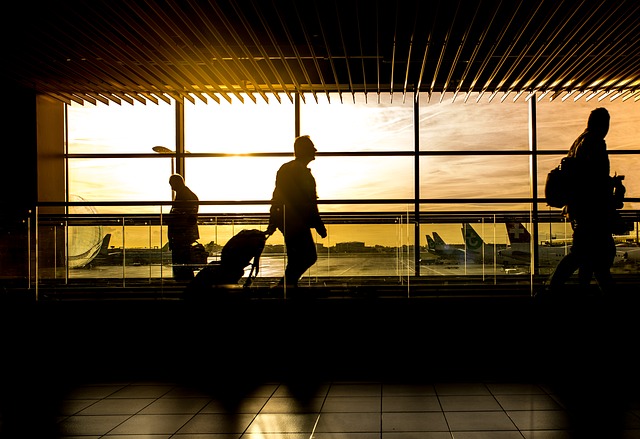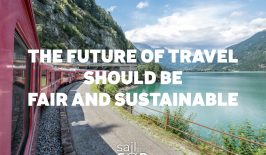What effect will the new French “ecotax” on plane tickets have on flights, passengers and more importantly, greenhouse gas emissions?
We’ve previously discussed the issue of greenhouse gas emissions from flights: air travel is currently estimated to contribute as much as two per cent of global carbon emissions, with all future projections showing increasing emissions as travel continues to become more accessible. This has prompted movements like Flygskam, research into the viability of electric aeroplanes and calls for the EU to try and reduce air travel by pushing to end the (global) tax exemption on jet fuel (one of the reasons why flights are often so much cheaper than alternative transport options). Proposals to ban short flights on routes where high-speed trains are available are also being considered.
But rather than waiting for an EU-wide initiative to come into effect, France has gone ahead and announced that it will be introducing an ecotax on all airlines flying out of France from 2020 onwards. The immediate effect of the tax is set to be a little bit more money in the coffers of the French government. The amount of tax charged on each flight will vary depending on the length of the flight, its destination and on the class (economy or business), costing between 1.50 euros for a domestic flight up to 18 euros for an international business flight outside of the EU. This is estimated to amount to 180 million euros per year. France’s transport minister, Elisabeth Borne, said last week that the revenue would be used to fund environment-friendly alternatives, such as rail.
Not all were pleased. Aviation industry group IATA is reported to favour a system that allows airlines to offset their emissions by paying for carbon reduction efforts elsewhere. A spokesman said that the move could end up harming the French aviation industry, and in turn, jobs. As if to prove the point, stock prices for European airlines including Air France, RyanAir, and EasyJet, fell.
But environmental organisations also had their reservations – generally of the opinion that it’s a good step, but a small one. The tax just doesn’t come close to representing the amount of pollution that flights are causing and the new tax is unlikely to change consumer behaviour and therefore have little affect on reducing greenhouse gas emissions. It certainly seems unrealistic that adding 1.50 euros to a single flight might stop people jumping onto a Ryanair flight, but maybe it’s a good idea to start with a lower price like this and increase it progressively.
It will most likely only be truly effective if more EU member states also come forward in support of ecotaxes. But will they? The Netherlands is planning to (re)introduce a flight tax from 2021 onwards, while Germany and Sweden already have similar taxes in place. There is also an argument to be made that governments could consider creating tax incentives for airlines to operate more fuel efficient aircraft and as mentioned already (but it’s worth mentioning it again) tackling the global tax exemption on aviation fuel.
In fairness, if I was to be critical myself, it would be to say that this ecotax doesn’t touch private jets. Taxing them first, before the average passenger, would have an outsized benefit for the environment. I would know; I’ve flown in a private jet before, after winning a trip in a competition. It was beyond ridiculous. And a record number of them flew into Davos this year, to listen to, among other things, talks about climate change.
Reorganising our economy around the needs of the Earth sounds pretty ok with me. If that means that airline stockprices falling and IATA is left with a few less PR spokesperson jobs, I can live with that.






